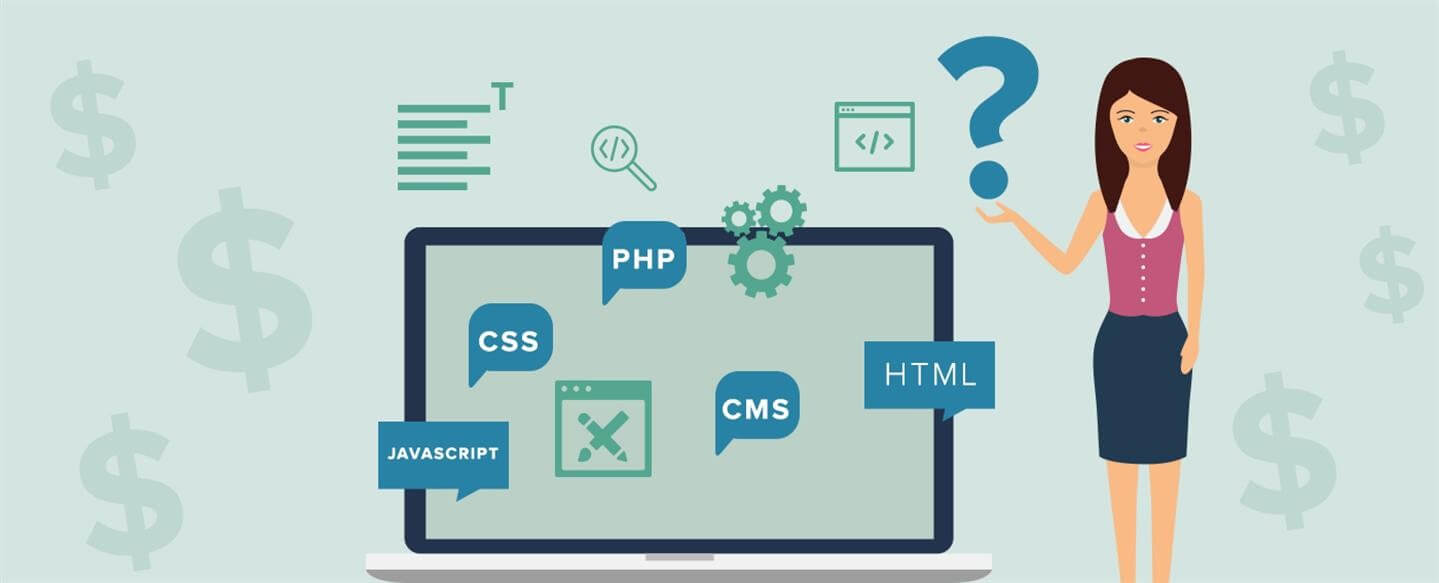So, how much is a website?

As industry professionals, we hear that question all the time. The answer of course, can vary quite dramatically depending on many different factors. It’s like asking, how much is a house? To answer that, you need to know some more detailed information, what sort of house, how many rooms, the preferred location and so on. Once you gather the relevant information, then it’s possible to give an estimate as to the potential price of the house.
It’s the same with a website, what sort of website will it be, what is the primary purpose for the site, what functionality is required, the list goes on. It is reasonable to expect that a luxury four bedroom home, is likely to cost more than a basic one bedroom home, but what is the difference between a cheap or even free website and one that may have cost thousands of dollars? The purpose of this blog is to identify the differences and, therefore, explain the reasons for the variation in price.
 The
first thing to discuss is the age old ‘build or buy debate’. There are many open source platforms that allow users to download and build
their own website from pre-made templates, so why not go ahead and do that? Well, you could, but just because you can doesn’t always mean
that you should. Back to the analogy of the house, instead of buying one you could go and buy some bricks and planks and set about
building it yourself, but would that really be a good idea? Well, sometimes it might be. The key is to consider what is appropriate for
the situation and the desired outcome. If the end result is a small garden shed and you had the time and inclination, then it might be
worth having a go yourself. On the other hand, if it is a long term family home to safely accommodate your nearest and dearest, then it
may be wiser to put the job in the hands of a qualified professional, with the knowledge and experience to do the job properly.
The
first thing to discuss is the age old ‘build or buy debate’. There are many open source platforms that allow users to download and build
their own website from pre-made templates, so why not go ahead and do that? Well, you could, but just because you can doesn’t always mean
that you should. Back to the analogy of the house, instead of buying one you could go and buy some bricks and planks and set about
building it yourself, but would that really be a good idea? Well, sometimes it might be. The key is to consider what is appropriate for
the situation and the desired outcome. If the end result is a small garden shed and you had the time and inclination, then it might be
worth having a go yourself. On the other hand, if it is a long term family home to safely accommodate your nearest and dearest, then it
may be wiser to put the job in the hands of a qualified professional, with the knowledge and experience to do the job properly.
If you do decide to go ahead and engage a professional web developer to build your website, the next question is how much should I be paying? Most business owners see the value in professional website development, but no one wants to pay more than they need to get the job done. So what is the difference between a website that cost hundreds and one that cost thousands? If you think of a website in terms of an evening meal, you can go to McDonalds and get dinner for seven dollars fifty, or you can go to the best restaurant in the city and pay two hundred. What is the difference here; both restaurants are serving dinner so the outcome is the same, right? Well, not quite, the difference is the context. McDonalds might be a perfect option after a movie with the kids; however, if your best client came to town what sort of message would it send if you brought them there?
Going to the quality restaurant gives you the opportunity to interact with your customers in a setting of your choice, ultimately the most appropriate setting to accurately position your brand. The product is prepared by qualified, experienced professionals who are passionate about what they do and how they do it. There are many options available which are carefully explained, to ensure that the end result is exactly what you wanted. This scenario is equally applicable to high end web development.
As usability expert Steve Krugg states...
“People are very good at satisficing, they glance at the pages, skim the information and chose the most reasonable option.”
As a business owner, how do you ensure that your site is, therefore, ‘the most reasonable option?’ When a website is designed for your company, your requirements are carefully considered. If the objective for the site is to become a market leader in the sales of a particular product, then everything from the concept to the content of that site will be designed with that goal in mind. High end web design companies have qualified graphic designers, web designers, web developers and copywriters on each project. They ensure that their work adheres to industry defined web standards, tried and tested usability principles and that they develop clean code, highly visible to search engines.
Your website is also the shop window for your company and it is vital that it makes the right first impression. Unique stylish artwork, quality optimised content and tight navigation all serve to differentiate your website amongst the millions of others already in existence. To stay competitive, websites require regular updates. An intuitive, functionally rich content management system makes this task as easy as possible. This is particularly relevant since the last two major Google upgrades have placed the emphasis firmly back on the content. As Matt Cutts from Google is constantly reminding us, recent, relevant high quality content is more important than ever for achieving high rankings with Google. It’s also important to consider the likely return on your investment. A website is a sales tool which needs to work for the company and in time, pay for itself. The extent of planning and consideration that goes into the design and build of a new website will directly impact the likelihood and timeframe of a complete return on that investment.
Let’s recap. If your business pays more for a website what are you getting for the money?
- Benefit of experienced professionals
- Stylish custom designed artwork
- Luxury of choice
- A website designed specifically for your company
- Processes designed to facilitate your customers
- Relevant brand positioning
- Tools to communicate with your customers
- Increased visibility to search engines
- Quality, search engine optimised content
- Better chance of high search engine rankings
- Return on investment
- High quality end result
- Increased functionality
- Multiple functionality in one tidy place
- A more future-proof website
To conclude, websites vary markedly in price depending on the design, the functionality required, the content and the platform used to build it. A website built on a high quality platform by qualified experienced professionals, produces radically different results from DIY sites built using open source tools and tired recycled graphics, and that is why there is a major difference in the cost. To select the appropriate option for your business, you need to consider what the site is for, the results that you expect to see from it and how you want to position your brand in the market. So, how much is a website? The answer can range from virtually nothing to several thousands of dollars; it’s a matter of analysing the requirements and selecting the right tools and team of people for the job.



